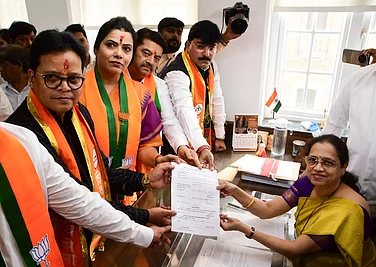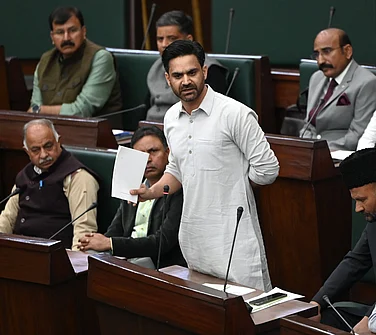"We will keep voting for her. Behenji will return," says Natha, a village elder. Though Mati ka Majra is one of the thousands of Ambedkar villages that has seen an improvement in amenities like roads, schools and electricity, its inhabitants are all landless labourers. They work as daily-wagers in the neighbourhood fields owned by Thakurs and Yadavs. Natha grumbles: "These days the Yadav is more aggressive than even the Thakurs." The only people who treat the Dalits with some respect, say the villagers, are the Muslims.
The social dynamics of this small cluster of villages has undergone a rapid transformation in the last 15 years. The Dalits now know their rights. They say that no one should dare push them back. Aggression against a recently awakened community would not be wise politics, they warn. As Natha says: "We will not tolerate nonsense from anyone."
Mati ka Majra is not Uttar Pradesh. But the caste politics that emerges here could perhaps give an indication of which way the Dalits, Yadavs, Thakurs and Muslims in India’s largest state would vote in any future election.






















